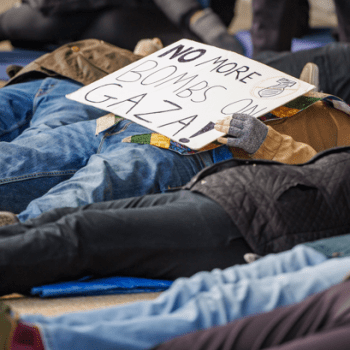(This is a follow-up to this. Neil Gaiman did it first and did it better, but if we let that stop us, we’d never write anything.)
She heard the news on the radio the night before, and wept.
In the morning she rushed out to the street to buy the paper. “Kennedy Assassinated” the headline read.
And back in her London apartment, she wept again.
The handsome young American leader had always reminded her, somehow, of her own brother. Another great leader cut down before …
She rubbed her eyes. That wasn’t quite right. Her brother had not been a great leader, but only a schoolboy when he died. And then it all came flooding back, the horrible accident at the train station, the three caskets at the funeral. And she wept again as she tried to absorb what the Daily Mail described as “the Great American Agony.”
There had been something inspiring about John F. Kennedy, something regal. “Camelot,” all the newspapers had said. Camelot or Cair … Cair …
She reached for a name and it receded. It seemed terribly important somehow. She almost glimpsed it for a second, but then it was gone.
Her hand shook as she reached to turn the page.
She stared at it. An ordinary hand — the ordinary hand of an ordinary woman. Not quite so ordinary, perhaps, for how many single women could boast of founding and managing a successful London bookshop before the age of 33? Yet sometimes she would glance at her hand, or catch a glimpse of her reflection sideways in a mirror, and there again would be that tantalizing half-memory. Sometimes in fantastical dreams she had seen her ordinary hands doing extraordinary things.
And sometimes not in dreams. A week before she’d walked through the park and something about the movement of the crowds triggered a sleeping reflex, beautiful and disturbing. Her hands had remembered what she could not of another crowded field, and her fingers had twitched, feeling again the deadly thrum of a bowstring.
She turned the page of the newspaper and saw the photograph of the vice president being sworn in, his hand raised as he stood beside the slain president’s beautiful young widow. She couldn’t bear to read this now.
She turned another page and another. It seemed strange that there should be other news on this day. It seemed almost disrespectful to the fallen president and to his grieving wife, the high lady of America.
But the newspaper showed that life goes on. And death, too. Here was the news of some beloved author and radio personality who had also died the day before. She vaguely recalled hearing him a few times on the radio, droning on about miracles and the efficacy of prayer. But she had never read his books. The death of this Oxford don meant nothing to her beyond a trivial footnote on a tragic day.
She was startled, then, to hear her own voice, and to realize that she was suddenly speaking aloud.
“Well, professor,” she said. “It seems that now I will never get a chance to forgive you.”















